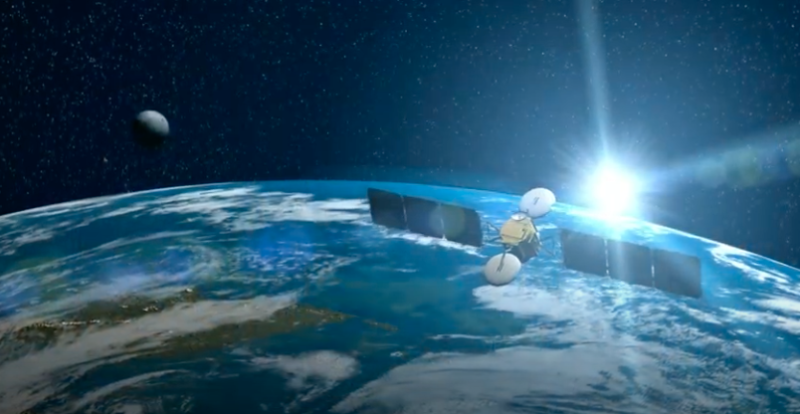Latest News

Screenshot via SSPI Video.
Has it ever struck you that the satellite industry does all the work and the mobile industry has all the fun?
It is an unfair comparison, of course. But consider: mobile gets the apps and games, the pictures and videos and social media frenzy. According to The New York Times, “The Nude Selfie is Now High Art.” I can’t think of the last time satellite technology had that much fun.
Mobile is Noble?
Mobile does things that are diverting, entertaining, and occasionally useful, like interactive maps (which, of course, use GPS), and online shopping. Whereas satellite technologies tend to do things that are essential, things on which lives literally depend.
Commercial airlines can’t fly without them. Computer networks won’t run without them. Agriculture, energy, weather forecasting, trade, mining, military missions, national and border security, humanitarian relief — it is hard to find a critical part of the modern world that doesn’t run on what I like to call the invisible, indispensable infrastructure of space and satellite.
One of my favorites is electricity. I have been through a few multi-day power outages. They are incredibly instructive about our complete dependence on electrons flowing through wires overhead or underground. Yet if all the satellites fell out of the sky, it would not be long before all the lights would go out.
Oh sure, there’s television. The silly and fun stuff pays the bills, but it is still considered essential for delivering news and critical information everywhere, not just to people with good cellular service who know how to use a computer.
The Strategic Need
Our business has a strategic problem. You and everyone you know has a mobile phone in pocket or handbag. I venture to suggest that there is a connection between that fact and the demands of governments to open up hundreds of megahertz of satellite spectrum to mobile carriers. There is a connection between that fact and the general absence of satellite in digital inclusion programs outside of developing nations. It turns out that being indispensable but invisible is not a particularly good place for an industry to find itself.
That’s why my nonprofit launched a guerilla campaign four years ago to influence how our industry thinks of its value and equip our companies to tell their story better. Stories about saving lives, feeding the hungry, growing the economy, and helping preserve our planet. The content is free to all at bettersatelliteworld.com, and I invite you to put it to work.
I also invite you to join us on October 4, when World Space Week will kick off once again. The focus this year is on how satellites improve lives, and the stories of our guerilla campaign will take center stage. If your company has its own stories, now is the time to think about sharing them, because millions of people around the world will be celebrating what you do every day. That’s not a bad way – we fervently hope – to say goodbye to the Great Lockdown and the curse of COVID-19.
 Robert Bell is executive director of Space & Satellite Professionals International. SSPI produces the Better Satellite World campaign, which dramatizes the immense contributions of space and satellite to life on Earth.
Robert Bell is executive director of Space & Satellite Professionals International. SSPI produces the Better Satellite World campaign, which dramatizes the immense contributions of space and satellite to life on Earth.
Get the latest Via Satellite news!
Subscribe Now